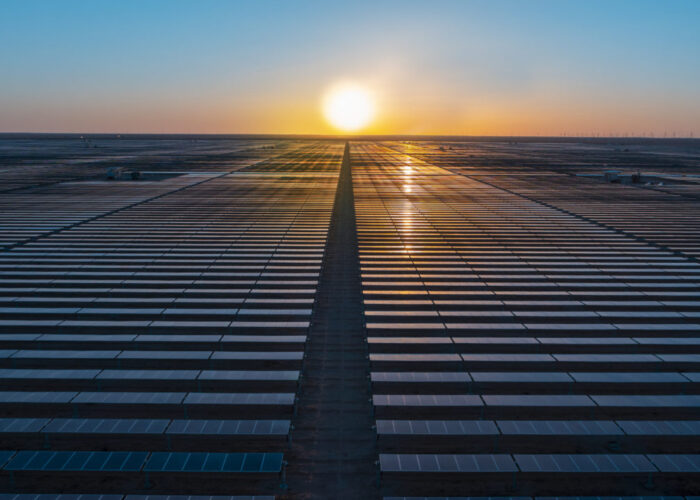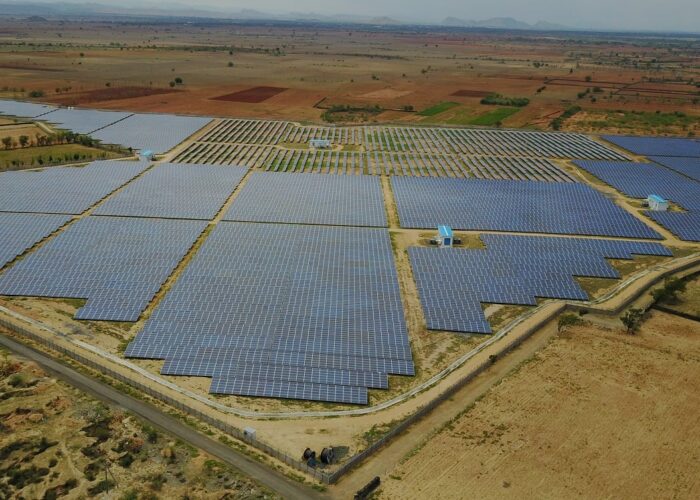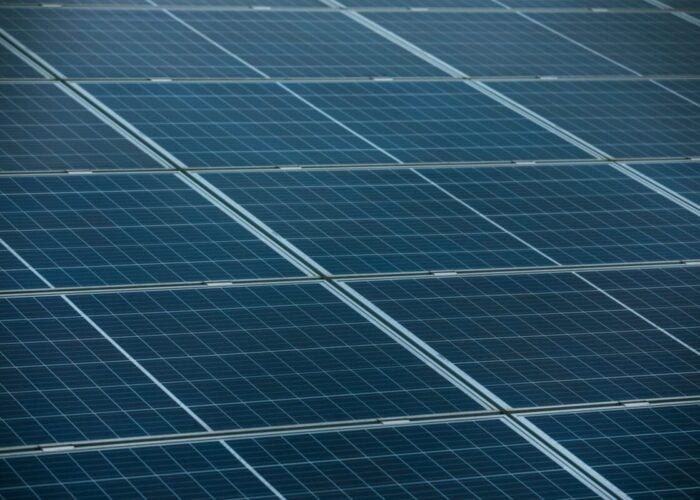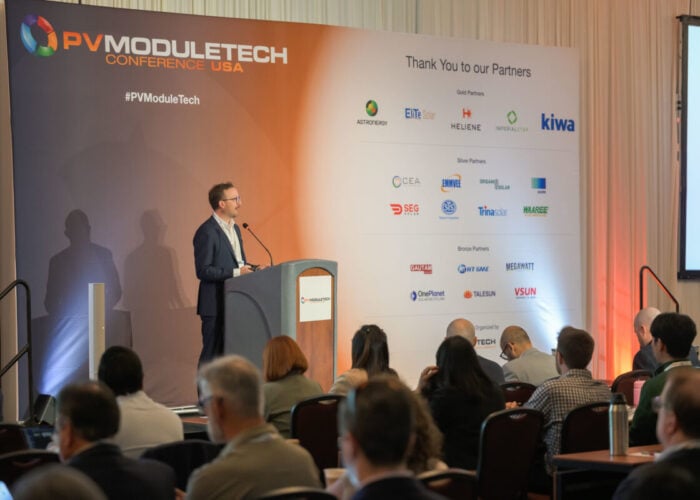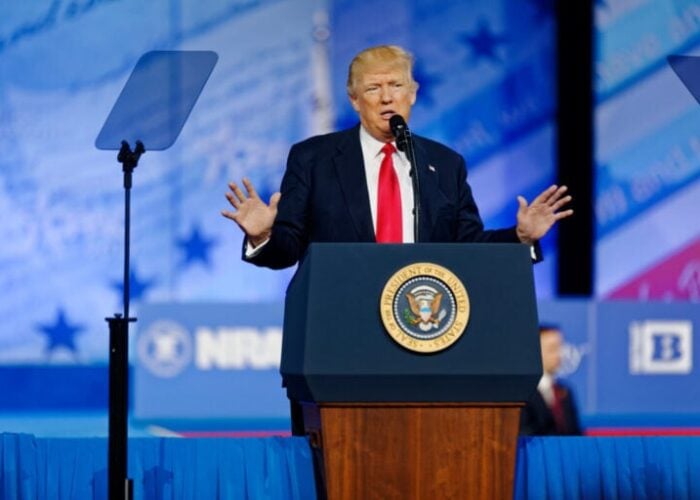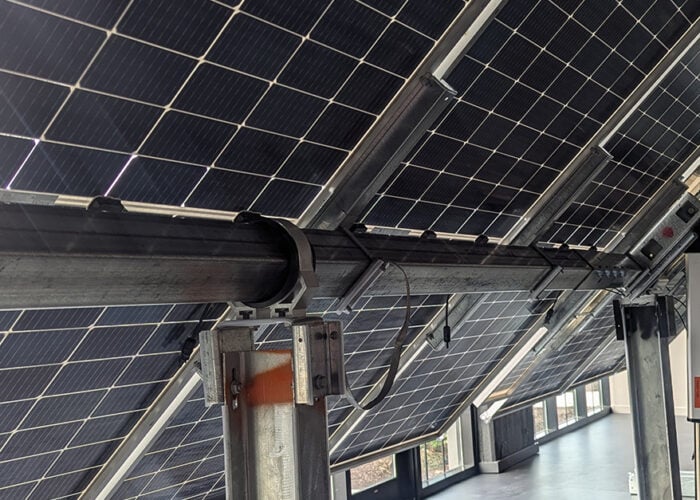
Yesterday’s record-breaking bid opening in Saudi Arabia for 300MW of solar has grabbed headlines, including on PV Tech, but while the exact parameters of the RfP remain covert, the bid levels have sparked debate about whether such low prices can be possible without some kind of escalating tariff mechanism or other distortion.
It’s worth breaking down how these numbers could have been reached and what we do know of the RfP and PPA setting.
Unlock unlimited access for 12 whole months of distinctive global analysis
Photovoltaics International is now included.
- Regular insight and analysis of the industry’s biggest developments
- In-depth interviews with the industry’s leading figures
- Unlimited digital access to the PV Tech Power journal catalogue
- Unlimited digital access to the Photovoltaics International journal catalogue
- Access to more than 1,000 technical papers
- Discounts on Solar Media’s portfolio of events, in-person and virtual
PV Tech understands that these tariffs are on an LCOE basis, which means there are no kickbacks or other distortions. The tariffs do involve an escalation, but this is accounted for in the bids we saw yesterday. Thus the bids quoted are in fact the levelised or average tariff for the 25-year PPA period.
They do not reflect private sector economic reality,” said SASIA
There is no guarantee that any of these bids will be awarded, but if Masdar and EDF Energies Nouvelles' submission – yesterday’s lowest bid out of eight – is found to be compliant and finally awarded, it would sit well below the two US cents threshold at SAR0.0669736/kWh (US$1.786 cents) and smash global PV records.
The Renewable Energy Project Development Office (REPDO) has made it clear the bids so far do not represent ranking, compliance or potential outcome of the final awards. It’s worth nothing that three companies put in submissions for higher than 300MW capacities: Marubeni (310MW), JGC (355MW) and Engie (381MW). This could affect REPDO’s final decision.
Benjamin Attia, analyst, Global Solar Markets, GTM Research, told PV Tech that the 25-year PPA is on offer with risk allocation requirements based on the Saudi Electric Company's (SEC) IPP framework. The PPA does not include stapled financing from SEC or REPDO, and the RFQ allows non-recourse long-term financing with up to 85% leverage ratio. Meanwhile, land lease and interconnection agreements are separate.
In a release, REPDO stated: “Bidders will be shortlisted by November 28th, 2017 and the project will be awarded to the winning consortium on January 27th, 2018, backed by a 25-year power purchase agreement. The financial closing date will be February 28th, 2018 and commissioning date is expected during 2019.”
Masdar and ACWA Power’s astonishing bids
Even if the headline tariffs come without any distortion, some commentators have pointed out some difficult implications for Saudi Arabia’s future plans of becoming a renewable energy heavyweight.
Attia said that Masdar and ACWA, the first and second place bidders, are both backed by sovereign wealth from Saudi Arabia and Abu Dhabi – adding: “So while this is a significant milestone for the global industry, this is not an easily replicable or sustainable level of bidding. The bid may be a loss leader to help bring attention to the newly launched National Transformation Plan and Vision 2030 plan, though it sets an unrealistic precedent for future projects.”
On similar lines, Browning Rockwell, executive director of the Solar GCC Alliance and the founder and executive director of the Saudi Arabia Solar Industries Association (SASIA), said: “ACWA Power is closely aligned with the Saudi Arabian government and royal family's interests from its origin, and has received equity investment from the Saudi Public Investment Fund. Masdar is part of Mubadala, a state-owned company in Abu Dhabi.”
“While these tender results will grab headlines, they do not reflect private sector economic reality. They do nothing to encourage private sector solar market development in Saudi Arabia, and they do not create a consistent pipeline that the industry needs to invest for long-term manufacturing and jobs. If anything, these results discourage the B2B solar market.”
Rockwell added: “This is effectively a Saudi Arabian government infrastructure project, in which the apparent low bidder is also a government that has no fiscal oversight; they have wide leeway to attract and deploy capital in the form of sovereign wealth.”
However, Attia noted that the “30% Saudization compliance requirement” could hold a key cost lever. If there is significant subsidy for local content for components or labor on the project, this, paired with sovereign wealth financing, could theoretically bring the bid into the realm of possibility, he added.
Regional competition
Adel Baba-Aissa, director of Renewable Energy Partner, a firm that has been active in an advisory role for projects in Saudi Arabia, told PV Tech that these developers would still be hedging on solar equipment prices coming down, but his company analysis is that prices for modules alone have levelled off to some extent recently. Nevertheless ordering 300MW of panels gives these companies a high purchasing power.
Baba-Aissa also highlighted the significant gap between Masdar’s bid and that of local firm Acwa Power – noting: “Masdar are beating Acwa in Acwa's country, which is something we weren’t expecting.”
He said that with Acwa having been so active internationally in the last couple of years, it was expected that these efforts would be in preparation to take on the Saudi market.
“It gets back that regional competition between the UAE and Saudi Arabia as well,” Baba-Aissa added.
Future of the NREP
Saudi Arabia’s National Renewable Energy Program (NREP), managed by the Ministry of Energy, Industry, and Mineral Resources (MEIM) targets 3.45GW of renewable energy by 2020, and 9.5GW by 2023.
Attia noted: “As we've said in the past, while competitive procurement through tenders has driven prices down significantly and sped up procurement across the globe, in markets that do not have a regular and predictable cadence of tenders, it is very difficult to imagine market creation being driven by tenders of this breed, and their viability as bankable assets is yet to be proven anywhere in the world.”
Rockwell also pushed for more emphasis on driving an active distributed generation market, claiming that without it, “solar energy development in the KSA will consist of solar projects, not a solar market organized by the private sector.”
He said that employment and human capital development would come from distributed generation, which, by building a solar marketplace, would also support ancillary industries like manufacturing, legal, banking, consulting.
What’s next
It’s important to remember that the record low bid from Masdar does not guarantee it will win the project and the next stage involves stringent technical, regulatory, and financial evaluation.
For any further complications or adjustments to the tender, “We'll have to wait and see,” Attia said.
The previous lowest ever solar bid was at Sweihan in Abu Dhabi, coming in with an LCOE of US$0.0294/kWh from a joint venture between JinkoSolar and Marubeni Corporation. The headline tariff was US$0.0242/kWh, but this included a split tariff that alters in summer and winter.
Article updated to include comments from Adel Baba-Aissa, director of Renewable Energy Partner.

